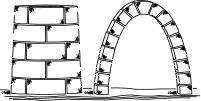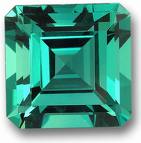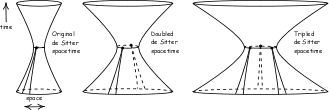|
John D.
Norton
Skeptical Principles
in Induction and Confirmation
|
|
home >> research >> Induction and confirmation:
skeptical principles |
 |
In a formal theory of induction, inductive inferences are licensed
by universal schemas. In a material theory of induction, inductive
inferences are licensed by facts. With this change in the conception of
the nature of induction, I argue that the celebrated “problem of
induction” can no longer be set up and is thereby dissolved.
|
"A Material Dissolution of the Problem of Induction."Synthese, Synthese. 191 (2014), pp. 671-690.
Download. |
 |
The famous example of "grue" presents essentially no new obstacle to
inductive inference beyond the familiar Humean lament that nothing
necessitates continuation of any pattern. The only novelty "grue"
offers is the possibility of a perfect grueified copy of ordinary
science, evidentially indistinguishable from it. But the perfection of
the copying means we cannot preclude it being merely the same science
in different words. |
"The Formal Equivalence of Grue and Green and How It
Undoes the New Riddle of Induction." Synthese, (2006) 150:
185-207. Download.
|
|
In other studies I defend the power of induction. I believe that the
popular underdetermination thesis is essential groundless speculation
based on a superficial treatment of inductive inference; and that the
much feared threat of "grue" to induction is greatly overrated. |
"Must Evidence Underdetermine Theory?" in The
Challenge of the Social and the Pressure of Practice: Science and
Values Revisited, M. Carrier, D. Howard and J. Kourany, eds.,
Pittsburgh: University of Pittsburgh Press, 2008, pp. 17-44. Download.
|
 |
What should we infer from the possibility of observationally
indistinguishable spacetimes? I urge they are not a manifestation of
the dubious thesis of the evidential underdetermination of theory, but
a form of indeterminism within a theory. Moreover inductively
discriminating among the spacetime requires inductive inferences that
are "opaque" in the sense the we cannot see through them to their
warrant. |
" Observationally Indistinguishable Spacetimes: A
Challenge for Any Inductivist." In G. Morgan, ed., Philosophy of Science Matters:
The Philosophy of Peter Achinstein. Oxford University Press, 2011, pp. 164-176. Download |
|
My long standing interest in induction and confirmation first led to
a series of studies of what is called "demonstrative induction" or
"eliminative induction." It is a powerful means of displaying the
import of evidence, fully able to defeat the common but mistaken wisdom
of the thesis of the necessary underdetermination of theory by all
possible evidence. The most interesting case I have examined was its
use to establish the necessity of quantum discontinuity in the 1910s on
the basis of the observed spectrum of black body radiation. |
"The Determination of Theory by Evidence: The Case for
Quantum Discontinuity 1900-1915," Synthese, 97 , 1-31. Download
"Science and Certainty," Synthese, 99, pp.3-22.
"Eliminative Induction as a Method of Discovery: Einstein's Discovery
of General Relativity," in J. Leplin (ed.) The Creation of Ideas in
Physics: Studies for a Methodology of Theory Construction.
Dordrecht: Kluwer, pp.29-69.
"How We Know About Electrons," pp. 67- 97 in R. Nola and H. Sankey,
eds., After Popper, Kuhn and Feyerabend; Recent Issues in Theories
of Scientific Method. Dordrecht Kluwer. Download.
With Jonathan Bain. "What Should Philosophers of Science Learn from the
History of the Electron." pp. 451-65 in J. Z. Buchwald and A. Warwick,
Histories of the Electron. Cambridge MA: MIT Press, 2001. Download.
|
|
|


